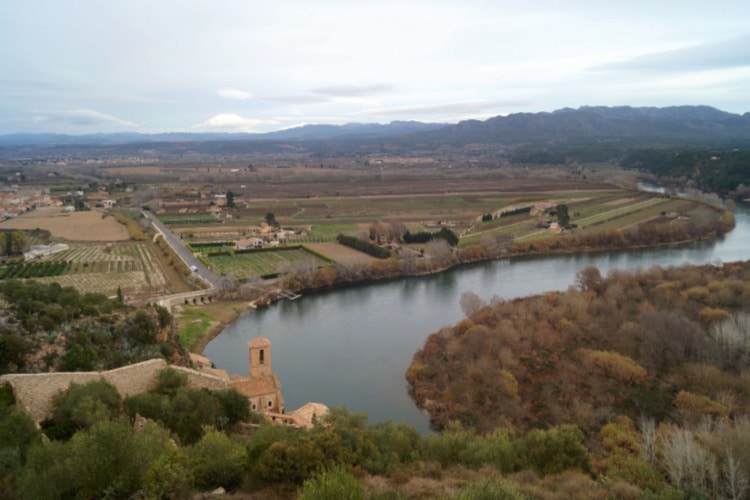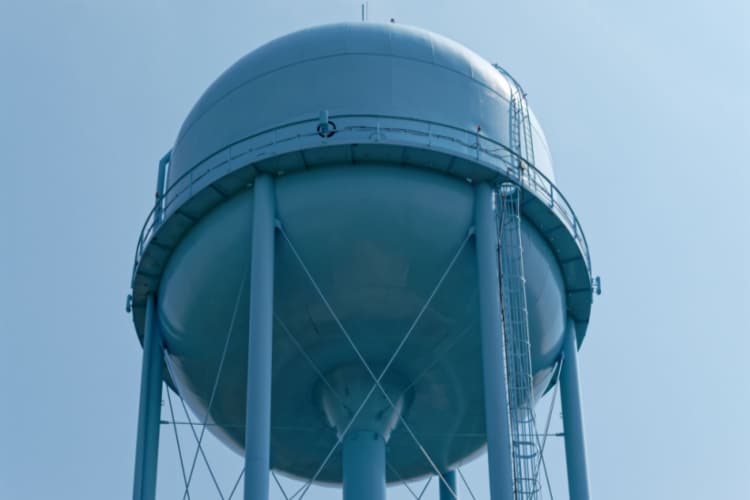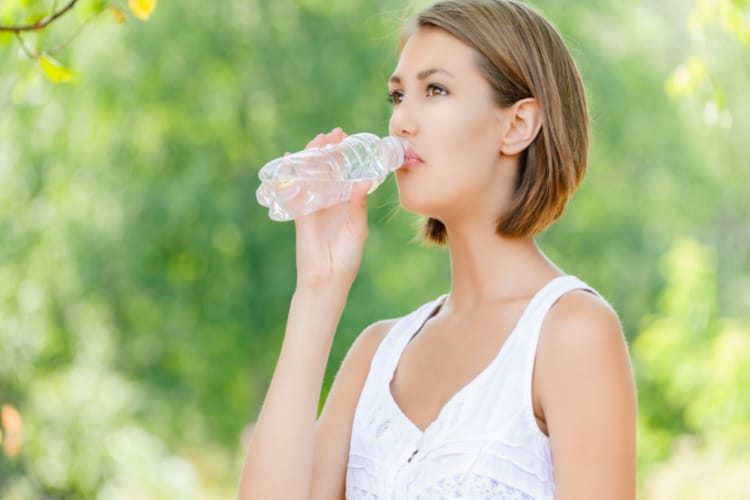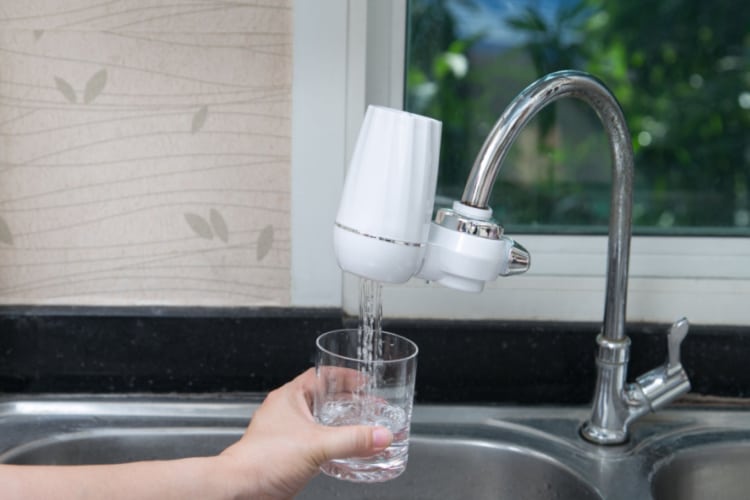Most of Spain’s tap water is safe to drink, but those visiting rural or coastal areas may want to purchase bottled water instead of drinking water from the tap.
In this article, we’ll discuss:
- Spain water quality report
- Top Spanish cities with the cleanest water
- Source of Spain tap water
- How tap water is treated in Spain
Is Spain Tap Water Safe to Drink?
Approximately 99.5% of Spain’s tap water adheres to international water quality standards making it safe to drink. However, people living in Spain may prefer to drink bottled water due to the local tap water’s strong chlorine taste.
Additionally, tap water in coastal areas can contain sand or small pieces of sediment that make the tap water less palatable. Still, Spain’s drinking water is generally considered safe (free from harmful contaminants).
Is Spain Hard or Soft?
The tap water in Spain ranges between very soft and very hard, depending on location. The provinces with the softest water tend to be those in the northwestern and middle regions.
Regarding the softest water, the city of Ávila (in the province of the same name) reigns supreme. But the areas along the east coast of Spain typically have much harder water.
Barcelona and Almeria have the hardest water in Spain’s regions, particularly along the coastal areas. Additionally, Zaragoza’s tap water tends to be much harder than the tap water of other landlocked Spanish provinces.
Top 3 Spain Cities with the Cleanest Water
The Spanish cities with the cleanest tap water are:
- Las Palmas
- Burgos
- San Sebastián
These cities have soft water flowing through their faucets, making it more palatable than the tap water in other areas of Spain. The tap water in these cities also enjoys reduced contamination from pollution sources and lower limescale levels.
Madrid (the capital city of Spain) also has some of the safest and cleanest tap water in Spain, though its taste may be too chlorine-rich for some.
But while you could safely drink tap water in Las Palmas, Burgos, San Sebastián, and Madrid, some cities in Spain have potentially dangerous tap water. You should avoid drinking the tap water in these cities:
- Cáceres (general contamination)
- Palma de Mallorca (excessive nitrates)
- Barcelona (microorganisms and bacteria)
Who Regulates Water in Spain?
Since 1985 the National Water Council is the primary institution that dictates and regulates national water plans and infrastructure. However, water has different entities in charge in Spain. Both public and private administrations regulate different functions of water.
The Basin Organizations, created in 1926, are the main authority when it comes to managing hydro resources. They protect and care for the sustainability of water resources. But each different town hall is responsible for carrying out the provision of services to the people. The supply of drinking water, purification, and sanitation is all part of their responsibilities.
Where Spain Gets its Water From
Spain primarily gets its drinking water from local sources. These sources (much like the water hardness in Spain) vary from region to region.
For example, Madrid’s drinking water comes from Canal de Isabel II, fed by melting snow from the Sierra de Guadarrama mountains. These mountains also serve as the drinking water source for other Spanish cities, including Granada.
A smaller percentage of Spain’s drinking water comes from underground reservoirs, local lakes and rivers (including the Ebro River), and desalination plants.

The glaciers of the Pyrenees mountain range are another crucial source of drinking water for Spain. But these glaciers have lost significant mass over the last century. As such, Spain may soon rely more heavily on desalination water treatment as its primary source of drinking water.
How Tap Water is Treated in Spain
Municipal water treatment plants treat tap water to make it safe. These are individual agencies located throughout Spain.
However, these treatment plants are overseen by Spain’s Ministerio de Sanidad (Ministry of Health), which requires them to submit lab test results bi-annually. Based on the results of these tests, the Ministerio de Sanidad may perform investigations into treatment plants that fail to meet health and safety standards.

Most of the water converted into tap water is sterilized via chlorination. This gas kills bacteria and viruses present in raw water supplies. Chlorination water treatment is why most of the country’s tap water has a distinctly strong chlorine smell and taste .
Is Drinking Bottled Water The Safest Option in Spain?
Bottled water is generally the safest alternative to tap water in Spain. Locals and visitors tend to prefer bottled water, as it doesn’t have the same chlorinated taste as tap water. Besides, bottled water is purified, so it doesn’t contain potential contaminants like some Spanish tap water.

One of the most popular brands of bottled drinking water in Spain is Agua de Solares, which is available from most supermarkets (Supermercados) and chain convenience stores like Carrefour Express.
Bottled water in Spain is sold as sparkling (Con Gas) or non-sparkling (Sin Gas). A 1.5-liter bottle of water costs about $0.65 (almost half a Euro). You can find bottled water in nearly every convenience store, supermarket, or restaurant in Spain.
Are Water Filters Necessary in Spain?

Water filters aren’t necessary in Spain, but they can be helpful. For example, faucet filters can remove sediment and sand from the tap water in coastal areas. In addition, water filter pitchers can remove the strong chlorine taste from tap water, making it more palatable.
If you’re concerned about Spain’s drinking water being safe enough to drink while visiting, you may want to consider bringing a personal water filter with you when traveling. However, you can also purchase a portable water filter after arriving in Spain.
Still, many locals and visitors opt to purchase bottled water instead of water filters.
Final Thoughts
Spain’s water is safe for human consumption but many people in Spain prefer drinking bottled water due to the tap water’s strong chlorine taste.
Visitors may want to follow suit by setting aside money for bottled water. Alternatively, travelers planning to visit Spain can bring unused water filter pitchers or purchase new water faucet filters upon arriving.